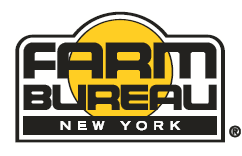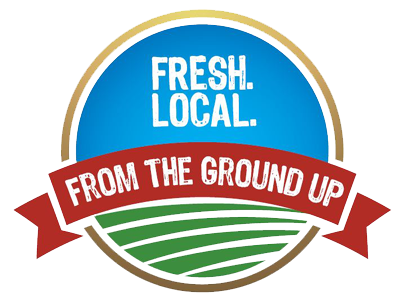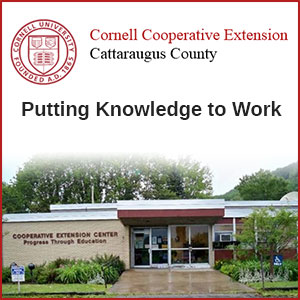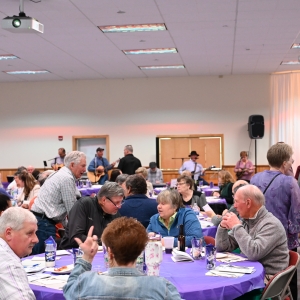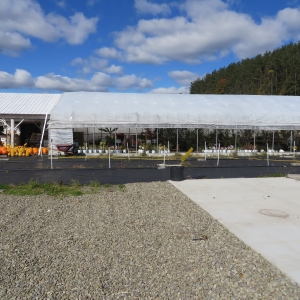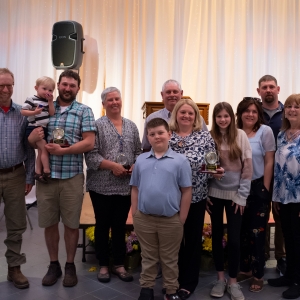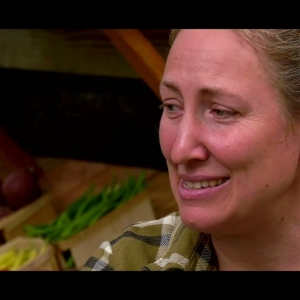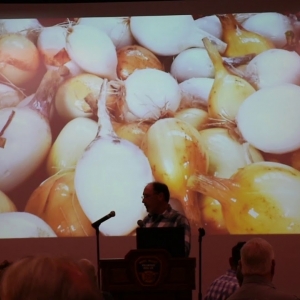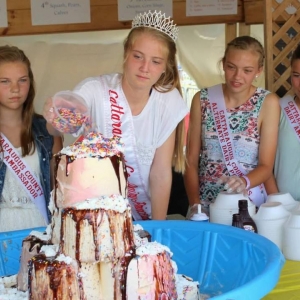Other Ag News:
(Washington, D.C., May 30, 2025) – U.S. Secretary of Agriculture Brooke L. Rollins will visit Rome, Italy, on June 2-3. During her visit, Secretary Rollins will reinforce the Administration’s expectations for improved agricultural market access to Italy and the European Union and will encourage the United Nations organizations in Rome to prioritize American interests, reduce costs, and focus on their core mandates.
USDA Invests $200M to Expand Timber Production, Strengthen Rural Economies, Secure American Industry
(Washington, D.C., May 29, 2025) – U.S. Secretary of Agriculture Brooke L. Rollins today announced a bold $200 million investment to implement the U. S. Department of Agriculture (USDA) Forest Service’s National Active Forest Management Strategy (PDF, 24.7 MB), a key initiative to increase timber harvest, improve forest health and productivity, reduce wildfire risk, and support rural prosperity in forest communities.
(Washington, D.C., May 29, 2025) – U.S. Secretary of Agriculture Brooke L. Rollins today announced the release of Congressionally mandated Emergency Livestock Relief Program (ELRP) payments to cover grazing losses due to eligible drought or wildfire events in 2023 and/or 2024. Secretary Rollins committed on May 7 to release these emergency payments by May 30, and today she is delivering on that commitment ahead of schedule.
(Washington, D.C., May 28, 2025) – Under U.S. Secretary of Agriculture Brooke L. Rollins’ leadership, American dairy producers will have greater market access as Costa Rica has approved the first U.S. dairy facility to be registered under their new streamlined approval process.
(Washington, D.C., May 27, 2025) – U.S. Secretary of Agriculture Brooke L. Rollins today provided an update on the U.S. Department of Agriculture’s (USDA) ongoing partnership with Mexico to combat the New World Screwworm (NWS). This afternoon, Secretary Rollins held a call with her counterpart in Mexico, Secretary Berdegue, to discuss the ongoing threat of NWS and actions being taken by both countries to contain the threat south of the U.S. border. USDA is working daily with Mexico to make sure the resources, tactics, and tools are in place to effectively eradicate NWS.
(Washington, D.C., May 27, 2025) – U.S. Secretary of Agriculture Brooke Rollins today announced the latest slate of presidential appointments for key positions at the U.S. Department of Agriculture (USDA) including the Food and Nutrition Service (FNS), Farm Service Agency (FSA) and Rural Development (RD).
(Washington, D.C., May 27, 2025) – U.S. Secretary of Agriculture Brooke L. Rollins announced today she will exercise the U.S. Department of Agriculture’s (USDA) authority to provide a much-needed funding increase of $14.5 million in reimbursements to states for meat and poultry inspection programs. Without this funding, States may not have the resources to continue their own inspection programs which ensure products are safe. This funding increase ensures American produced meat and poultry can make it to market and onto the tables of families across the country.
Join Our Team: Cornell Small Farms Seeks Program Coordinator
The Cornell Small Farms Program team is continuing to grow, and we are hiring! We are excited to share that the application is now open for our newest team member, the Program Coordinator.
For more than two decades the Cornell Small Farms Program (SFP) has engaged in research and extension projects that support small farm viability. Over time this work has expanded to reach more farmers and engage more collaborators across New York State and beyond.
We are now seeking a Program Coordinator to join our team to support our major educational programs. Core responsibilities of this role will include leadership of our robust online course portfolio and oversight of all program budgets.
The Program Coordinator will work in close collaboration with the Program Director and leadership team, administering the business aspects of the program and ensuring the delivery and evaluation of program goals and initiatives.
We are currently welcoming applications and we look forward to discussing the position with you. External applicants must apply through the Cornell Careers site. Internal applicants (including temporary employees) will need to apply through Workday. The posting will close on May 31, 2025.
Our Team Is Growing: Now Hiring Assistant for Veterans in Ag Project
The Cornell Small Farms Program team is continuing to grow, and we are hiring! We are excited to share that the application is now open for our newest team member, Program Extension Aide III- Veteran Program Assistant.
Through the efforts of the Farm Ops project to support military veterans entering into agricultural vocations or farming as a career, our veteran audience has grown. We aim to create new pathways for farm training and educational resources that address the specific needs of veterans and complement existing, established resources.
The Veteran Program Assistant will play a key role in helping enhance the resources and training available to military veterans interested in farming. While our primary efforts will target veterans (service members who have already been discharged), we will extend the resources we develop to those on active duty, who want to farm after their service commitment.
We are currently welcoming applications and we look forward to meeting you! External applicants must apply through the Cornell Careers site. Internal applicants (including temporary employees) will need to apply through Workday. The posting will close on May 31, 2025.
The post We’re Hiring: Two New Admin Positions Open at Cornell Small Farms appeared first on Cornell Small Farms.
Pages
Signup for the Ag Newsletter
Get the freshest farm news, events and updates from in and around Cattaraugus County, NY at least once a month! Go signup!
Other ways to stay connected:
Get Involved in Farming
Resources for Starting a Farm in Cattaraugus County
Profile of Cattaraugus County soils
Agriculture Career Exploration
Questions about farming? Find out Who to Call

